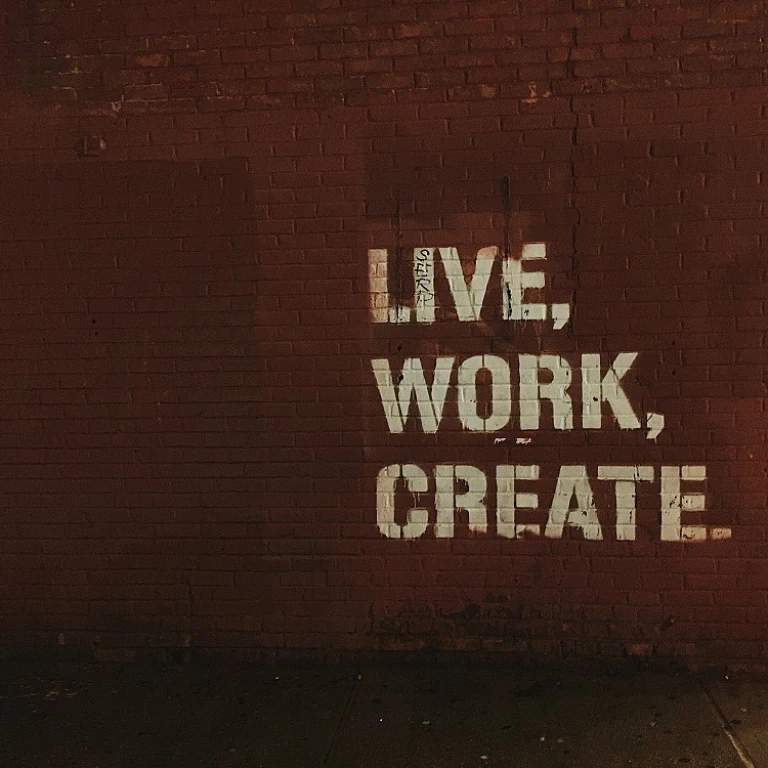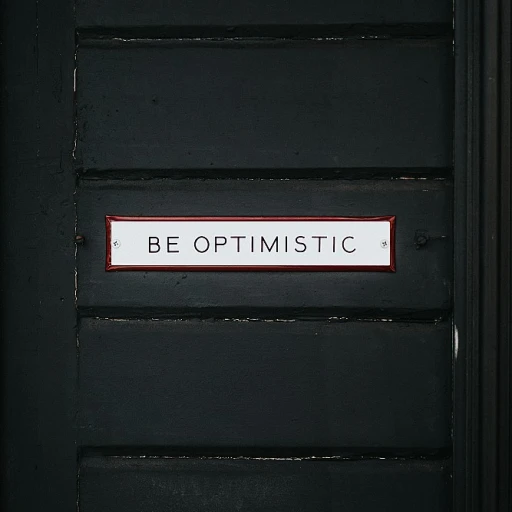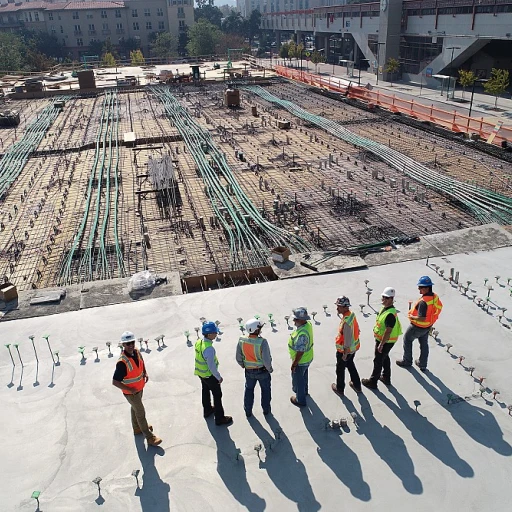The Role of AI in Streamlining HR Tasks
Revolutionizing Routine HR Functions
In the ever-evolving landscape of human resources, artificial intelligence is emerging as a powerful ally in automating routine tasks. From managing employee records to scheduling interviews, AI is transforming how HR departments operate, allowing professionals to focus more on strategic initiatives rather than getting bogged down by repetitive duties.
One of the most significant advantages of AI in HR is its ability to efficiently manage employee records. By automating data entry and ensuring data accuracy, AI systems reduce the risk of human error and save valuable time. This automation not only streamlines administrative tasks but also enhances data security and compliance, crucial factors in today's data-driven world.
Moreover, AI tools are becoming increasingly adept at handling recruitment processes. With AI-powered applicant tracking systems, HR teams can sift through resumes more quickly, identify the best candidates, and even predict a candidate's potential fit within the company culture. This efficiency is a game-changer, especially for organizations facing high volumes of applications.
As we delve further into the capabilities of AI, it's clear that the technology is not just about replacing human effort but augmenting it. By taking over mundane tasks, AI allows HR professionals to focus on more value-added activities, such as enhancing employee experience and driving organizational growth.
Data-Driven Decision Making in HR
Informing HR Strategies with Data Analytics
Artificial intelligence has undoubtedly revolutionized how HR departments access and analyze vast quantities of data. With AI, HR professionals can use comprehensive datasets to inform their decision-making processes with precision and insight unprecedented in traditional HR management. By sifting through immense volumes of employee data, AI systems can identify patterns and trends that may not be immediately visible to human analysts.
These capabilities allow HR departments to make well-balanced decisions grounded in empirical evidence rather than guesswork. For example, AI-driven insights can help HR teams understand factors contributing to employee turnover, performance variances, or satisfaction levels. This allows companies to implement targeted strategies tailored to addressing the root causes of these issues rather than applying generalized or ineffective solutions.
Furthermore, AI is not only a powerful tool for analyzing historical data but also an invaluable resource for predictive modeling. By forecasting potential trends and outcomes, HR teams can anticipate future challenges and opportunities, making informed strategic decisions ahead of time. This approach leads to more agile and responsive HR practices, ultimately benefiting the entire organization.
In implementing AI tools for decision-making, AI empowers companies to effectively utilize data to create a more efficient and strategic HR function. From auditing specific HR issues to transforming payroll processes (as described
here), AI continues to lead the way toward a more modern and data-driven human resource landscape.
Enhancing Employee Experience with AI
Transforming Interaction in the Workplace
In the contemporary workplace, artificial intelligence is not just a tool for efficiency; it's a catalyst for a transformative employee experience. As businesses increasingly rely on HR automation to carry out daily tasks, AI makes strides in humanizing interactions and enhancing the overall work atmosphere.
One of the key areas where AI shines is in personalized employee engagement. Through intelligent chatbots and virtual assistants, employees can receive real-time assistance with routine inquiries, from benefits information to leave requests, thus streamlining these interactions. This immediate access to information not only empowers employees but also frees up HR personnel to focus on more complex, value-driven tasks.
Furthermore, AI technologies contribute to creating a seamless onboarding process. New hires are often welcomed with comprehensive AI-driven onboarding programs that cater to their individual learning paces and needs. This ensures that they are equipped with the knowledge and tools necessary to succeed from day one. More information on how AI is revolutionizing the onboarding experience can be found in this
detailed guide.
By automating mundane tasks and offering personalized support, AI plays a vital role in enriching the employee journey. As discussed in earlier sections, the integration of AI in decision-making allows HR teams to anticipate and respond to employee needs more effectively. Predictive analytics, for example, enable the identification of dissatisfaction trends, allowing management to proactively address issues and foster a positive workplace culture.
As businesses continue to navigate the dynamics of workforce planning, AI remains a
game-changer for businesses, redefining not just operations but the very essence of employee experience. By harmonizing technology with human resources, companies are not only enhancing efficiency but building an engaged, motivated, and satisfied workforce.
AI-Powered Learning and Development
Transforming Learning and Development with Artificial Intelligence
In the ever-evolving world of business, continuous learning and development have become indispensable. As organizations strive to equip their workforce with the latest skills and knowledge, AI-driven tools have emerged as vital facilitators. These tools are revolutionizing how employees engage with learning resources, providing personalized and adaptive learning experiences that cater to their unique needs and career goals.
AI technologies analyze vast amounts of data from employees' past learning activities, job performance, and even personal interests to curate tailor-made learning pathways. This customization ensures that every individual receives the most relevant training, thus enhancing their skill sets and contributing to the organization's overall success.
Moreover, AI is introducing interactive and immersive training methods, such as virtual reality-based simulations, that bring learning to life. Employees can practice real-world scenarios in a controlled environment, significantly improving retention and understanding.
This digital transformation aligns with our earlier discussion about data-driven decision-making in HR, where leveraging data helps in creating more cohesive and well-targeted learning strategies. AI algorithms continuously refine these strategies, making them more precise over time.
As AI continues to power the learning and development sector, it becomes apparent that its role is crucial not only in equipping employees with the skills they need today but also in future-proofing their careers amidst ever-changing industry demands. Businesses that harness the potential of AI in this domain are setting themselves up for sustainable growth and a competitive edge in the marketplace.
Predictive Analytics in Talent Management
Unlocking Talent Potential through Predictive Analytics
Predictive analytics is revolutionizing talent management, offering unprecedented insights into workforce dynamics. By analyzing a myriad of data points such as performance metrics, engagement levels, and even social patterns, AI tools identify potential challenges and opportunities within the workforce.
Imagine being able to foresee employee turnover or recognizing the best candidate for a promotion months in advance. Predictive analytics allows HR professionals to proactively address issues before they escalate, thereby ensuring a more stable and engaged workforce. By leveraging data-backed forecasts, companies can align their talent strategy with their business objectives, leading to improved performance and productivity.
The earlier sections discussed how AI is integral in streamlining HR tasks and data-driven decision-making. Similarly, predictive analytics serves as a cornerstone of modern HR practices. It provides HR teams with actionable insights, making the hiring process more efficient and helping with the retention of top talent.
Moreover, predictive analytics aids in creating a dynamic and adaptable learning environment. By understanding skills gaps and employee potential, companies can tailor development programs that not only meet current needs but also prepare employees for future roles.
In essence, the transformative power of predictive analytics in talent management fosters a culture of growth and innovation. As businesses adopt these advanced tools, they pave the way for a future where human resources are not just managed but strategically guided towards success.
The Future of AI in Human Resources
Envisioning Tomorrow's Human Resources Landscape
As we step into the future of human resources, the profound impact of AI cannot be overstated. It's clear from our journey through HR automation that AI is not just a tool but a comprehensive partner in transforming the way HR functions are conducted. From effectively streamlining time-consuming tasks to refining data-driven decision-making processes and enhancing the employee experience, AI is reshaping the HR domain in remarkable ways.
Looking forward, one might wonder what further advancements AI will bring to HR. Imagine a world where AI predicts talent acquisition trends, plays a pivotal role in conflict resolution, or even helps design tailored employee development plans. The potential applications are vast and invite endless possibilities.
As technology advances, we can also expect AI to become more intuitive and emotionally intelligent, making it an even more natural and integral part of workplace interactions. It could lead to the development of systems capable of understanding not only the professional needs of employees but also their personal and psychological requirements, thus promoting a more holistic approach to employee engagement.
Moreover, the integration of AI-powered predictive analytics in talent management is just the tip of the iceberg. In the coming years, we could see AI providing deeper insights into workforce dynamics, improving retention strategies, and identifying gaps in skill sets before they become problematic. These insights will be invaluable in maintaining a competitive edge in an ever-evolving business landscape.
In conclusion, the future of AI in human resources holds immense potential. As we stand on the brink of this technological evolution, the key will be to embrace these innovations while ensuring that the human element remains at the heart of all HR processes. As AI continues to revolutionize HR, it's essential for organizations to strike a balance between leveraging technological advancements and nurturing human connections. This will ensure a future where both technology and people thrive, paving the way for a more efficient, engaging, and inclusive workplace.











